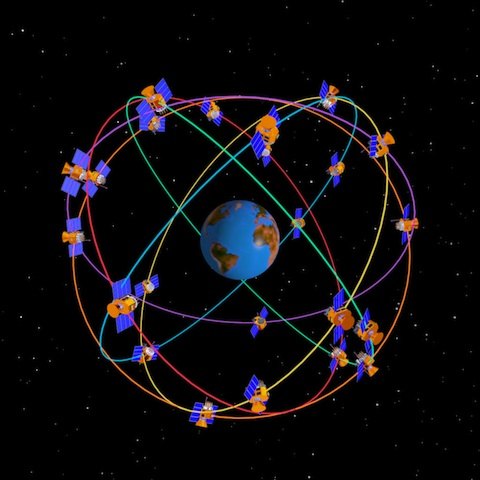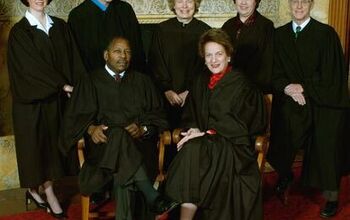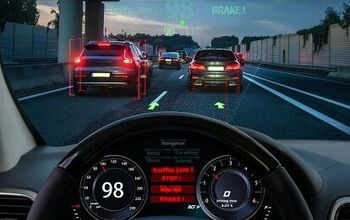Massachusetts Supreme Court Strikes Down Warrantless GPS Spying
The Supreme Judicial Court of Massachusetts ruled last Thursday that police officers need to obtain a warrant before using a Global Positioning Satellite (GPS) device to track a motorist. The ruling was handed down in the case of Everett H. Connolly who was convicted of cocaine trafficking after police traced his activities using a GPS device five years ago.For more than a year, police suspected that Connolly was a drug dealer and used traditional surveillance and investigative techniques to gather evidence. On August 30, 2004, state police took the next step by obtaining a warrant to place a GPS tracker on Connolly’s minivan. Using data from the device, police believed Connolly was on his way back from a drug buy in New York. On September 9, officers armed with a new search warrant arrested Connolly in Cape Cod. A search uncovered 124 grams of cocaine hidden in the vehicle.
“We conclude that the installation and use of the GPS device in the circumstances of this case was a seizure requiring a warrant, and that the warrant obtained had not expired when the minivan was seized,” Justice Judith A. Cowin wrote for the majority. “We conclude that a warrant was required here because the initial installation of the particular device clearly constituted a seizure under article 14 [of the Massachusetts Declaration of Rights]… It is a seizure not by virtue of the technology employed, but because the police use private property (the vehicle) to obtain information for their own purposes.”
The court found in this case that the police followed all proper procedures to obtain judicial permission before acting. Given this, the full court upheld Connolly’s conviction. Three judges, however, disagreed with the majority’s reasoning that the use of GPS constitutes a ‘seizure’ of property.
“When there is no physical intrusion into the vehicle to install the GPS device but simply the attachment of a battery-powered device to the exterior of the vehicle, the police have not seized the vehicle, but instead have invaded the reasonable expectation of privacy of any person authorized to drive that vehicle,” Justice Ralph D. Gants wrote in his dissent. “Our constitutional analysis should focus on the privacy interest at risk from contemporaneous GPS monitoring, not simply the property interest. Only then will we be able to establish a constitutional jurisprudence that can adapt to changes in the technology of real-time monitoring, and that can better balance the legitimate needs of law enforcement with the legitimate privacy concerns of our citizens.”
In May, the New York State Court of Appeals agreed with the privacy reasoning of the dissenting justices, while Wisconsin’s second-highest court found no problem with warrantless spying.
A copy of the decision is available in a 170k PDF file at the source link below.
Massachusetts v. Connolly (Supreme Judicial Court of Massachusetts, 9/17/2009)
More by The Newspaper
Latest Car Reviews
Read moreLatest Product Reviews
Read moreRecent Comments
- ToolGuy There was a time when in a place called America there were roads, and they were paved, and they were paved smoothly enough for a vehicle like this. Perhaps our next President will bring back that concept.
- ToolGuy I suppose I will listen before commenting. (TG, what a fair-minded dude!)
- ToolGuy "The technology is much more advanced to be better than a role model driver,”• Do any of you know what a "role model driver" is? No, I guess you wouldn't. 😉
- ToolGuy I might be Batman.
- Lou_BC Well, I'd be impressed if this was in a ZR2. LOL


































Comments
Join the conversation
Sorry, but I don't understand Judge Gants' "expectation of privacy" statement. How can the places to which you drive your car be "private?" Ask yourself this: Suppose GPS wasn't invented, but the police were so determined to get this suspect that they assigned a platoon of undercover officers, each with a different car, to follow this suspect wherever he went. Further suppose that either the suspect was extremely careless or that the undercover officers were so good that their surveillance was not detected. Suppose those officers observed the suspect traveling to a number of known or suspected drug sales or distribution locations. Would that have required a warrant? No, it would not. As long as the suspect is driving in public on a public highway, he has no "reasonable expectation of privacy" as to where he goes.
What search and seizure is must be examined, not the technique used. What if we used an X-ray machine to examine the contents of a locked vehicle parked on a public street? That is obviously illegal search, but by some viewpoints it would seem not because physical entry wasn't used! Using technology to augment human capabilities to do a search that would otherwise be impossible without violating search and seizure makes it a violation, because people have an expectation of privacy in their effects. Otherwise people must be on guard against GPS trackers, X-ray machines and even resort to imagining unknown devices just in case are being used against oneself. This contradicts what living in a free society is about.